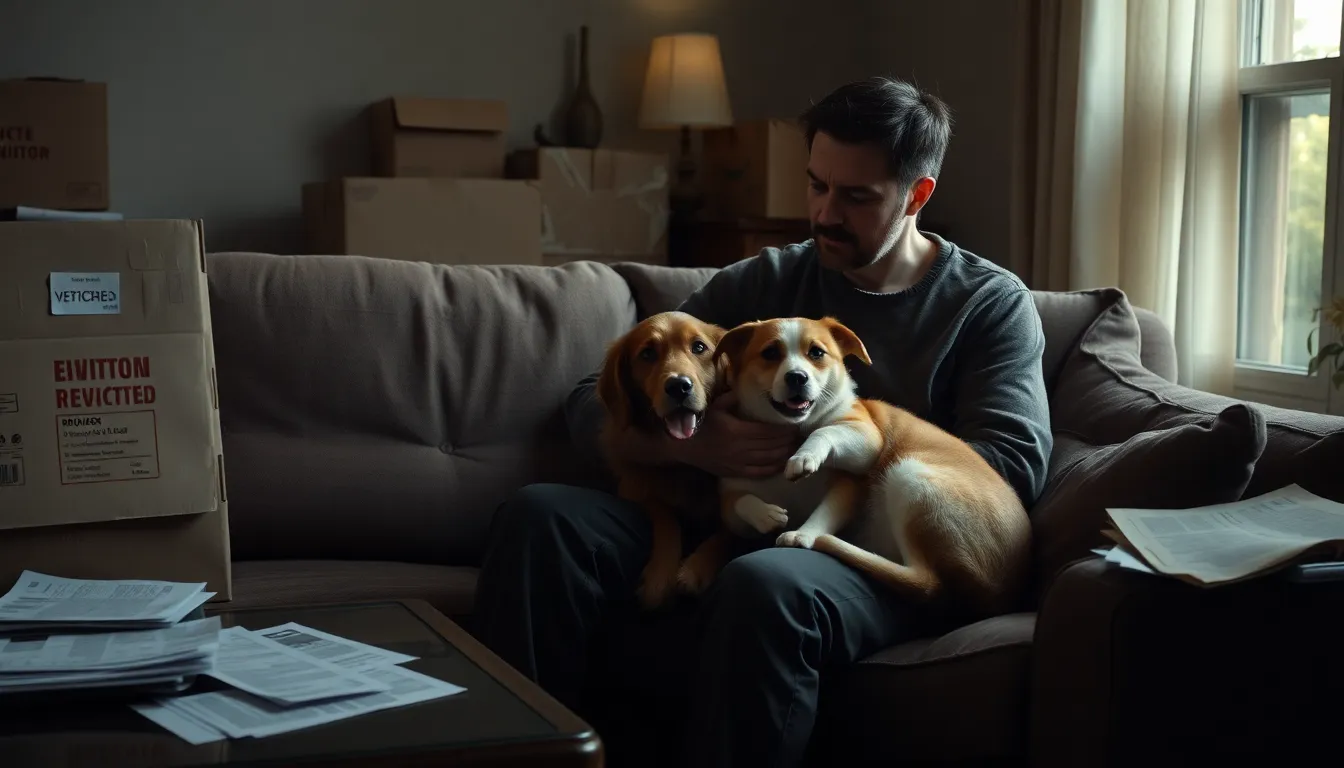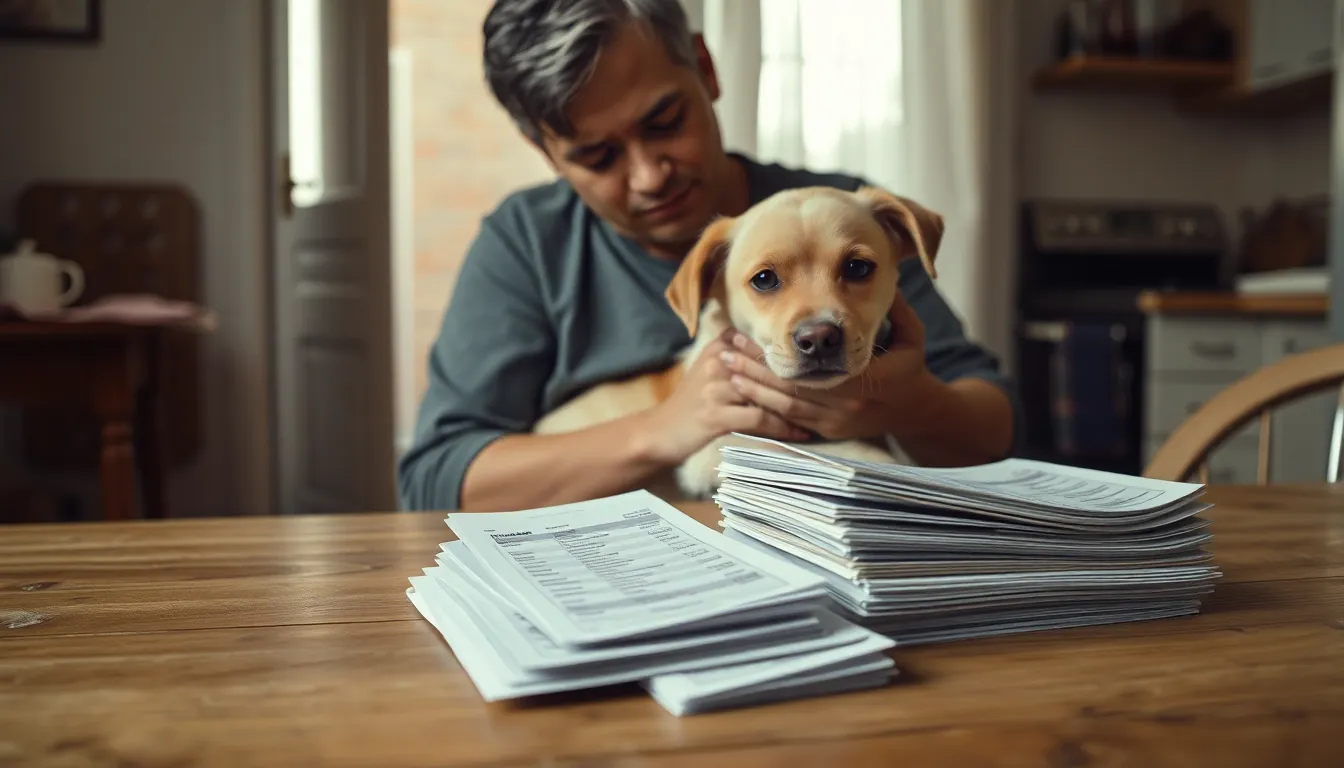Tough decisions when the cost of pet ownership soars are becoming an unfortunate reality for many families, driven by escalating economic pressures. Housing instability and the rapidly rising expense of veterinary care are forcing numerous individuals to make the heartbreaking choice to surrender their beloved animal companions.
Key Implications:
- Pet Surrender Crisis: Economic pressures, particularly housing instability and prohibitive veterinary expenses, are directly causing a significant rise in pet relinquishments to shelters, indicating a profound societal challenge.
- Financial Burden on Owners: The escalating costs of pet care, from routine vet visits to emergency treatments, create substantial financial strain, often making it impossible for owners to afford necessary medical attention for their animals.
- Systemic Solutions Required: Addressing this crisis demands multifaceted approaches, including expanded pet-friendly housing initiatives and accessible, affordable veterinary care support programs, to prevent relinquishments and keep pets in loving homes.

Housing Instability and Vet Costs Fuel Pet Relinquishments
The Arizona Humane Society reports a critical and concerning trend: a direct correlation between escalating economic pressures and a significant increase in pet surrenders (Arizona Humane Society). This stark reality highlights the profound impact that financial strain can have on families and their cherished animal companions. The primary drivers behind this difficult situation are unequivocally linked to housing instability and the increasingly high cost of veterinary care, forcing many pet owners to make heartbreaking choices they never anticipated.
For countless individuals and families, the joy of pet ownership is overshadowed by mounting financial anxieties. As economic conditions tighten, households find their budgets stretched thin, making it exceptionally difficult to cover routine expenses, let alone unexpected emergencies. These pressures converge to create a perfect storm, where the very act of providing a loving home for a pet becomes an insurmountable challenge, leading to the painful decision of surrender.
The Crippling Impact of Housing Instability on Pet Owners
Housing instability presents a significant hurdle for pet owners across the nation. Factors such as rising rental costs, strict landlord policies against pets, and the scarcity of pet-friendly housing options contribute to this growing crisis. Many families face eviction or are forced to relocate, only to discover that suitable housing that accommodates their pets is either non-existent or prohibitively expensive. The financial burden of pet deposits, often equivalent to an additional month’s rent, can also be a barrier for those already struggling.
Even when pet-friendly housing is found, size or breed restrictions can often exclude larger dogs or specific breeds, regardless of their temperament. This forces families into an impossible position: choose between their housing security and keeping their beloved animal. Such situations underscore the complex challenges that extend beyond simple affordability, touching on the accessibility and availability of suitable living environments for both humans and their pets. The emotional toll of having to give up a pet due to housing constraints is immense, reflecting the depth of human-animal bonds.
For those experiencing homelessness or precarious housing situations, keeping a pet can become an immediate safety concern, both for themselves and their animal. Shelters and temporary accommodations often have strict no-pet policies, leaving individuals with few options. This systemic issue demands broader community solutions and more pet-inclusive housing initiatives to prevent further relinquishments driven by housing insecurity alone.
Beyond housing, the high cost of veterinary care stands as another formidable barrier to sustained pet ownership. From routine check-ups and vaccinations to emergency surgeries and chronic disease management, veterinary expenses can quickly accumulate, creating substantial financial strain. A simple diagnostic procedure can cost hundreds of dollars, while life-saving surgeries or long-term treatments for conditions like cancer or diabetes can run into thousands. Many pet owners simply cannot afford the immediate financial outlay required for critical care.
Several factors contribute to these rising costs, including advancements in veterinary medicine, sophisticated diagnostic tools, and the increased specialization of animal doctors. While these developments offer pets better health outcomes, they often come with a significant price tag. For many, an unexpected illness or injury to their pet can trigger an immediate financial crisis, especially without adequate savings or pet insurance.
Understanding the real reasons behind surging vet bills is crucial for pet owners. These insights can help prepare for potential expenses and explore preventative measures. Unfortunately, surveys often find why many pet owners cannot afford veterinary care, citing lack of savings, unexpected emergencies, and the overall economic climate as primary reasons. This financial vulnerability often places pets at risk of not receiving necessary medical attention, ultimately impacting their quality of life and potentially leading to more severe conditions.
Preventative care, while seemingly an additional cost, can often mitigate more expensive future treatments. However, even these routine expenses can be a challenge for struggling families. When a pet develops a chronic condition, the ongoing medication, special diets, and regular veterinary visits can become an unbearable financial burden, pushing owners towards difficult decisions.
Tough Decisions When the Cost of Pet Ownership Soars
The combination of housing instability and exorbitant veterinary expenses often culminates in an agonizing choice for pet owners: the relinquishment of their beloved animals. This is not a decision made lightly, but one born out of necessity when all other options have been exhausted. The phrase “tough decisions when the cost of pet ownership soars” accurately encapsulates the emotional distress and practical dilemmas faced by these individuals.
Pet surrenders represent a last resort for owners who genuinely love their animals but are no longer able to provide for their fundamental needs. It is a testament to their care that they seek out a humane society, hoping for a better future for their pet, even if it means profound personal heartbreak. The increase in these surrenders points to a systemic societal challenge rather than a lack of commitment from individual owners.
Addressing this crisis requires multifaceted solutions that tackle both housing affordability and access to affordable veterinary care. Community support programs, subsidized pet care services, and expanded pet-friendly housing initiatives are vital. Exploring options like pet insurance coverage, even if specific to regions like Australia, highlights the global need for financial safeguards against unexpected pet care costs.
Ultimately, the aim is to support pet owners so they can keep their animals, fostering stable homes and reducing the emotional and logistical burden on animal shelters. No pet owner should have to face the tough decisions when the cost of pet ownership soars simply because of economic hardship or lack of resources. It is a collective responsibility to build a society where pets and their families can thrive together without undue financial strain.

Data & Evidence
Pet welfare organizations often serve as critical indicators of broader economic health. Dr. Steven Hansen, CEO of the Arizona Humane Society, identifies his organization as a “barometer for economic conditions across the state.” This insight reveals how economic fluctuations directly impact individuals and families. Their ability to care for companion animals often diminishes under financial strain.
When financial pressures mount, the repercussions are clear. Pet surrender rates directly reflect the increasing burden on owners. Data consistently shows the overall “cost of caring for an animal is skyrocketing.” This escalating financial demand forces many loving owners to confront a heart-wrenching reality.
They face tough decisions when the cost of pet ownership soars. Such situations often lead to difficult surrenders. These circumstances underscore a systemic issue rather than individual shortcomings.
The Economic Ripple Effect on Pet Ownership
Economic instability directly correlates with an increase in pet relinquishments. As wages stagnate and living expenses rise, discretionary income for pet care diminishes. Owners, despite their best intentions, may find themselves unable to afford essential services. This includes everything from routine veterinary check-ups to specialized diets or grooming.
When families experience job loss, reduced income, or unexpected financial burdens, pets often become an unsustainable expense. This economic ripple effect means that the ability to afford veterinary care or even daily necessities becomes a severe challenge. For many, these represent tough decisions when the cost of pet ownership soars. The emotional toll of these circumstances on both pets and their owners is profound, reflecting widespread financial distress.
Key Drivers of Pet Surrender
Among the primary reasons cited for pet surrender, “problems with housing” consistently rank highly. The scarcity of affordable, pet-friendly rental properties presents a significant hurdle for many families. Landlords increasingly impose restrictions on pet size, breed, or number, or demand exorbitant pet deposits and monthly fees. This limits housing options for pet owners.
For individuals facing relocation or housing instability, finding suitable accommodations that accept pets can be nearly impossible. This often forces a devastating choice between securing shelter for themselves and keeping their beloved animals. The lack of flexible housing solutions significantly contributes to the difficult decisions families must make regarding their pets’ future, often forcing them into situations where they face tough decisions when the cost of pet ownership soars.
Another critical factor driving pet surrender is the “high cost of medical care.” Veterinary expenses have seen a dramatic increase, making both routine and emergency treatments financially inaccessible for many. A simple illness or accident can quickly lead to bills running into thousands of dollars. Specialized surgeries or ongoing care for chronic conditions are even more prohibitive.
Many pet owners are unprepared for these substantial and often unexpected veterinary costs. Without adequate savings or pet insurance, they are left with limited options. This often means foregoing critical treatment or, tragically, surrendering their pet. They hope another family or shelter can provide the necessary medical attention. Understanding the real reasons behind rising vet bills is crucial for addressing this issue.
Understanding the Skyrocketing Costs
The escalating expense of caring for animals is a multifaceted issue influenced by various economic and social factors. Inflation impacts the cost of pet food, supplies, and veterinary pharmaceuticals. Advances in veterinary medicine, while offering better outcomes for pets, also come with higher price tags for diagnostics and treatments. Increased demand for pet services also drives up costs across the board.
This comprehensive rise in expenses creates a perfect storm for many pet owners. What was once an affordable companion can quickly become a significant financial burden, especially when unforeseen circumstances arise. The cumulative effect of these rising costs means that even responsible owners, dedicated to their pets’ well-being, find themselves in an increasingly precarious position. Exploring best pet insurance options can offer a buffer against these unpredictable expenses.
Ultimately, the escalating costs associated with pet ownership are leading to more frequent and painful dilemmas. The data unequivocally shows that financial constraints, particularly those related to housing and healthcare, are compelling factors behind pet relinquishment. These systemic issues demand broader solutions to support families who are making tough decisions when the cost of pet ownership soars, ensuring more pets can remain in loving homes.

Content Focus
The bond between humans and their pets is profound, yet increasing economic pressures are forcing many families to make agonizing choices. Across the nation, a growing number of pet owners face the heart-wrenching decision of relinquishing their beloved animals. This trend signals significant societal shifts and points to systemic challenges affecting household budgets. For many, these represent tough decisions when the cost of pet ownership soars, pushing them to the brink of affordability.
The Rising Tide of Pet Relinquishment
Pet relinquishment is a direct and painful indicator of economic strain on families. When owners can no longer provide adequate care, shelters become a last resort. The reasons are often complex, but two primary factors stand out: housing challenges and the escalating financial burden of veterinary care. These issues converge to create an environment where keeping a pet becomes unsustainable for many. Understanding these specific pressures is crucial to addressing the root causes of animal homelessness.
Housing Pressures on Pet Owners
Securing affordable, pet-friendly housing is a monumental hurdle for many individuals and families. A scarcity of suitable rental properties that welcome animals contributes significantly to relinquishment rates. Landlords often impose strict breed or weight restrictions, effectively barring certain pets from residences. Excessive pet deposits and monthly pet rent further inflate living costs, placing an additional financial strain on owners. These housing-related expenses can quickly become prohibitive, forcing difficult choices.
Eviction due to a pet or the inability to find new housing that accommodates an animal are common scenarios. In such cases, families may be forced to surrender their pets to avoid homelessness themselves. This housing crisis demonstrates how broader economic and social factors directly impact pet welfare. It underscores the profound link between human housing security and animal well-being.
Beyond housing, the financial burden of veterinary care is another critical factor driving pet relinquishment. Routine preventative care, while essential, can be costly. When unexpected illnesses or injuries occur, emergency veterinary bills can quickly skyrocket into thousands of dollars. Many pet owners simply lack the savings or disposable income to cover such substantial expenses. This reality often leads to delayed treatment, worsening conditions, or, tragically, the inability to provide necessary care.
The Arizona Humane Society, a direct indicator of economic impact on pet owners, has observed this trend firsthand. They emphasize the qualitative observation of “skyrocketing” pet care costs as a critical economic pressure. These rising costs encompass everything from routine vaccinations to complex surgeries and ongoing medication for chronic conditions. Pet owners are often caught in a dilemma, unable to afford treatment but unwilling to let their pets suffer. This challenging situation highlights why many face such tough decisions when the cost of pet ownership soars beyond their means. Resources are available to help understand why health care for pets has been surging and what factors contribute to these escalating bills. Furthermore, surveys consistently show that many pet owners struggle to afford veterinary care, underscoring the widespread nature of this problem.
The Arizona Humane Society: A Barometer of Economic Strain
The Arizona Humane Society stands as a vital barometer, reflecting the economic realities faced by local pet owners. Their intake numbers and the reasons cited for relinquishment provide a clear window into the prevailing economic climate. When the economy falters or costs of living rise, animal shelters often see a corresponding increase in surrendered animals. This makes the Humane Society’s observations particularly insightful.
Their reports frequently highlight the direct link between economic hardship and pet ownership decisions. The organization directly experiences the consequences of escalating costs for pet food, supplies, and, most notably, veterinary services. They witness firsthand the anguish of owners who must part with pets due to financial constraints. The Humane Society’s qualitative observation of “skyrocketing” pet care costs is not merely anecdotal; it represents a significant economic pressure that places an immense strain on families and their furry companions. This stark reality underscores the urgency of finding sustainable solutions to support pet ownership. It’s a reminder that these are truly tough decisions when the cost of pet ownership soars, affecting entire communities and the welfare of countless animals.
Featured image generated using Flux AI
WBUR: “Tough decisions when the cost of pet ownership soars”
